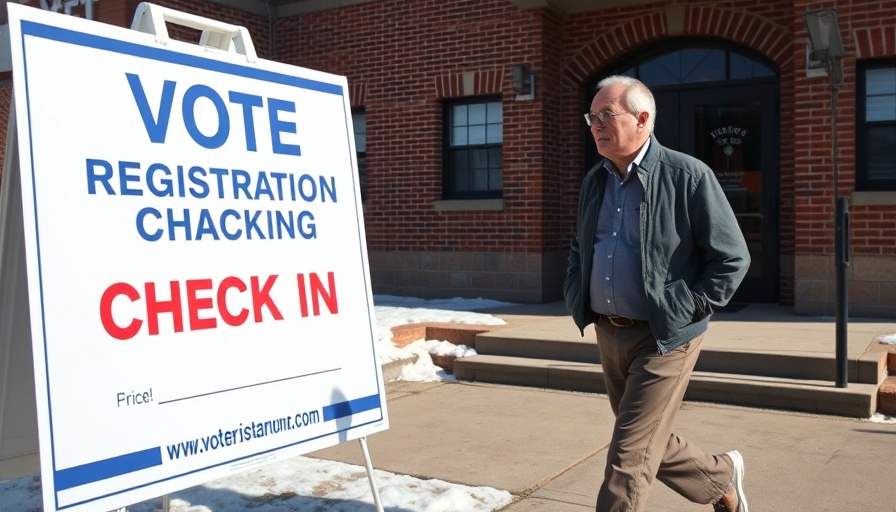
Trump's Executive Order: A Game-Changer for U.S. Elections
In a bold move that has generated widespread debate, President Trump has signed an executive order aimed at overhauling the U.S. electoral process. One of the hallmark features of this sweeping legislation mandates proof of citizenship for voters, a step that proponents argue is essential for election integrity while critics view it as a possible suppressor of voter turnout.
Understanding the Implications of Proof of Citizenship
The requirements for voter registration have undergone significant changes, with the most contentious aspect being the requirement for individuals to provide proof of citizenship. Supporters of this move claim that it will strengthen the electoral framework and prevent ineligible individuals from voting. They argue that many states already require such proof, and extending this policy nationwide could bolster confidence in election outcomes.
On the other side, critics argue that these requirements disproportionately affect marginalized communities, including minorities and low-income citizens, who may have more difficulty obtaining the necessary documentation. This argument raises concerns about accessibility and inclusivity in America's democratic processes. Examining both sides helps illuminate a central question: how do we balance election security with equitable access to voting?
Historical Context: The Evolution of Voting Rights
To understand the current electoral landscape, it's important to consider the historical evolution of voting rights in the United States. The Voting Rights Act of 1965 was a pivotal moment that aimed to eliminate barriers to voting for African Americans and other marginalized groups. However, recent legislative changes suggest a shift in priorities that may lead to conflicts with these hard-won protections.
This historical backdrop fuels ongoing debates about voting rights today, further informing the discourse surrounding Trump's executive order. It also invites comparisons to past legislative efforts that have aimed to enhance or restrict voting rights based on various ideologies.
Current Events and Their Connection to Trump’s Order
As the U.S. prepares for the upcoming midterm elections, President Trump's actions come at a time of heightened scrutiny and tension surrounding electoral integrity. Numerous debates and legal battles continue to arise around issues of election security, making Trump's mandate a significant focal point in the national news landscape.
In addition, with ongoing voter ID laws and related measures being debated and challenged in courts across the nation, the impacts of Trump's executive order could play a crucial role in shaping future electoral practices. Observers are keenly noting how these changes influence voter turnout and public perception of the elections, as various state laws respond to the federal directive.
What Voters Should Know
With these changes on the horizon, it’s crucial for voters to stay informed and understand how these regulations may affect them. Registration processes may become more complex, and individuals will need to ensure they have the necessary documentation ready in advance of upcoming elections. Voter education campaigns focused on these changes will be vital to mitigate confusion and maximize participation.
Furthermore, organizations dedicated to advocating for voting rights are gearing up to counter potential negative impacts of these regulations. By mobilizing grassroots efforts, they aim to ensure that everyone who is eligible can participate in the electoral process.
Final Thoughts: The Future of Voting in America
The implications of Trump's actions will likely reverberate through future elections, shaping not just the political landscape but also the citizen’s sense of involvement and empowerment. As this situation evolves, voters need to remain vigilant and active in advocating for their rights. Mobilizing support and understanding the complexities of electoral reforms can contribute to a more secure yet inclusive democratic process.
As election season approaches, it is time for citizens to engage proactively with these changes. Stay informed, educate peers about voting rights, and participate in upcoming discussions surrounding electoral integrity. This is not just a matter of policy; it is vital for ensuring that every eligible voice is heard in our democracy.
 Add Element
Add Element  Add Row
Add Row 



Write A Comment